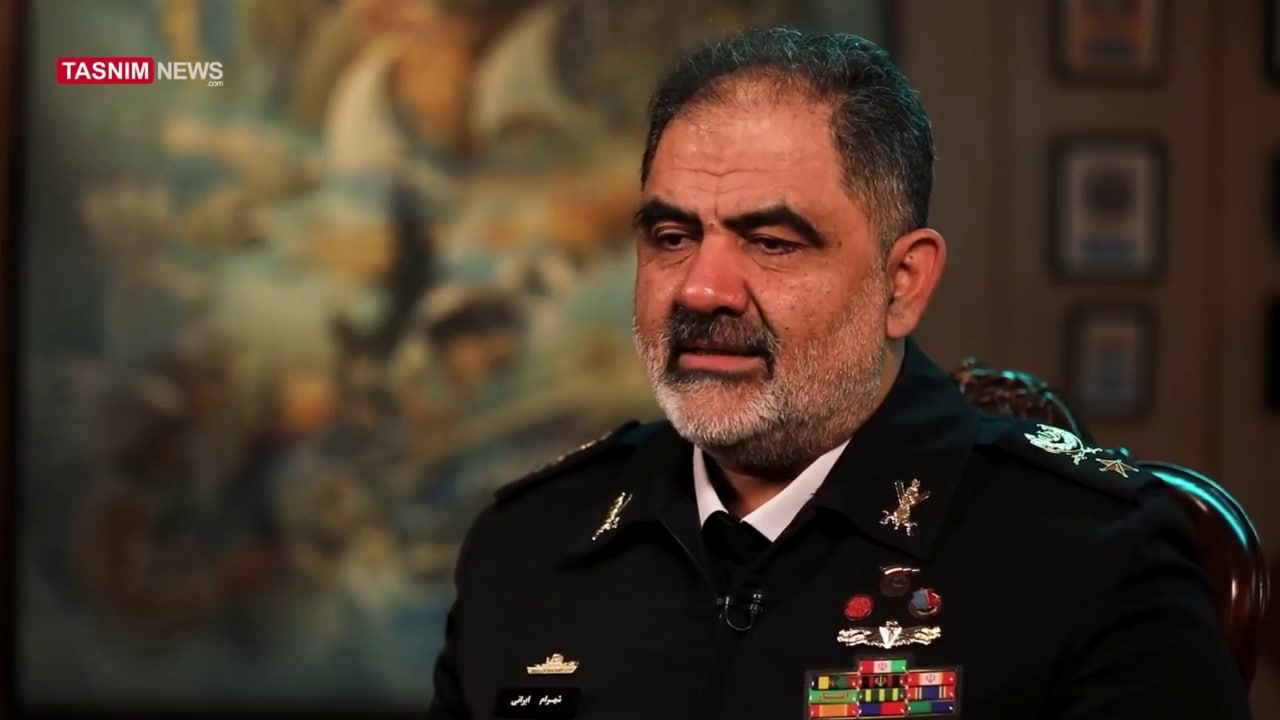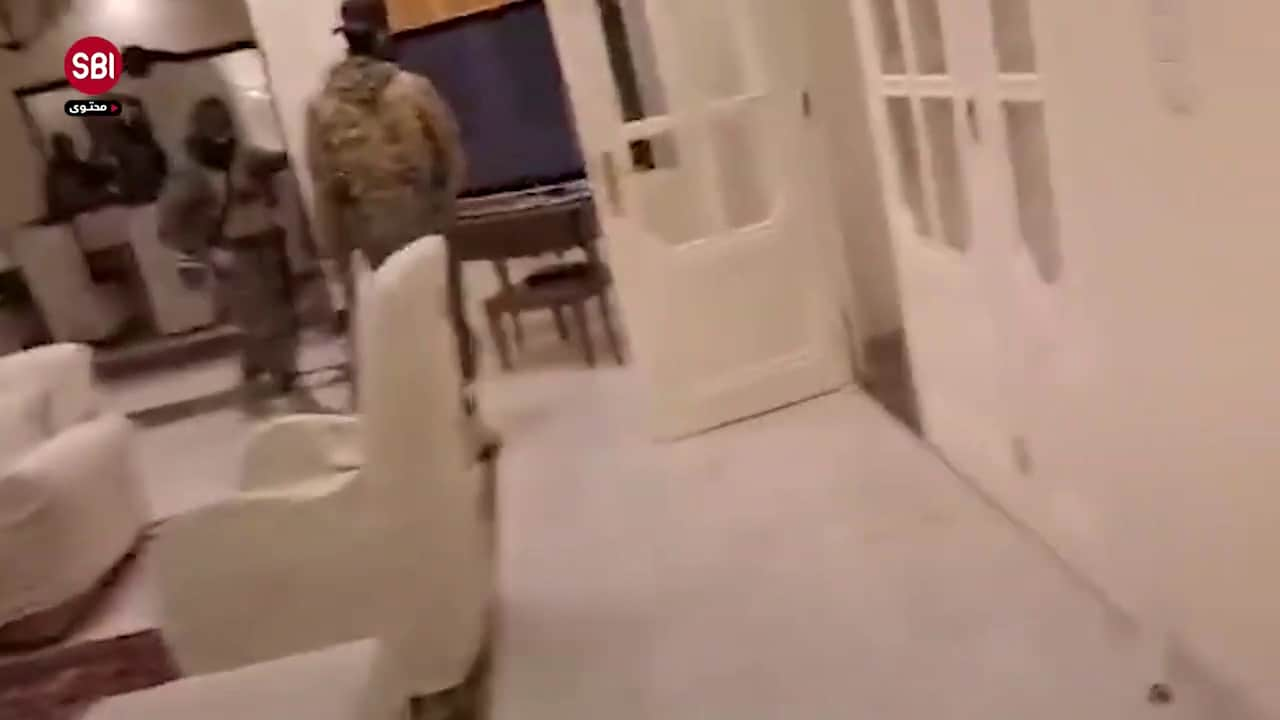
On December 21, 2020, Iranian Foreign Minister Mohammad Javad Zarif was interviewed on TOLOnews TV (Afghanistan) about Iran's actions regarding Afghan refugees and Afghan fighters in Syria. Zarif said that the Taliban have no headquarters or base in Iran, that Iran maintains relations with the Taliban out of necessity, and that perhaps some people with ties to the Taliban travel back and forth between Iran and Afghanistan. He denied the claim that Iran sent 25,000 Afghans to fight against ISIS in Syria, saying instead that Iran merely armed and supported anti-ISIS forces. Zarif also said that Iran pays compensation to the families of Afghan fighters who were killed in Syria, and that the Afghan government is aware of Iran’s willingness to help Afghan forces "regroup" in the fight against terrorism.
Interviewer: "Do the Taliban leaders have houses in Iran in Mashhad and Zahedan?"
Mohammad Javad Zarif: "I do not know. Some people, who have relations with the Taliban, might move back and forth to Iran. But they certainly do not run any headquarters or base in Iran."
Interviewer: "Something like the Mashhad Council and the Zahedan Committee..."
Zarif: "I have also heard about it, but I do not really have the information about it."
Interviewer: "It's your country!"
Zarif: "Yes, it is."
Interviewer: "You don't have the information, or you reject its existence?"
Zarif: "We have three million refugees from Afghanistan in Iran."
Interviewer: "This is the same thing the Pakistanis say."
Zarif: "No. I explained the type of our relations with the Taliban. We neither created them, nor did we recognize them [their government]. You might remember that there were three countries who recognized the Taliban government – Pakistan, the United Arab Emirates, and Saudi Arabia. We did not recognize it. Therefore, our relations with the Taliban come from a necessity for their presence along our borders."
[...]
Interviewer: "Why do you send Afghans to the Syrian war?"
Zarif: "We do not send anyone to Syria."
Interviewer: "You sent 25,000 Afghans."
Zarif: "Look, I made it clear, nobody goes to war on behalf of a foreign country to a third country. Our brothers would go to [Syria] voluntarily. Some Iraqis went and some other countries took part in [the war in Syria]."
Interviewer: "But you facilitated them."
Zarif: "In Syria, we helped [the anti-Daesh front]. Daesh is a common enemy to all of us."
Interviewer: "You armed them although you say the Afghans should make a decision on their own."
Zarif: "They went on their own. We did not send them."
Interviewer: "You armed them. Where in the world..."
Zarif: "They went to fight for their beliefs."
Interviewer: "You invited them."
Zarif: "Some of them erected Afghanistan's flag in their outposts and displayed the photo of the Afghan president. They are the best forces with a military background in the fight against Daesh. The Afghan government, if willing, can regroup them."
Interviewer: "What for?"
Zarif: "For the fight against Daesh and for the fight against terrorism and for the protection of Afghanistan security."
Interviewer: "Inside Afghanistan?"
Zarif: "Wherever the Afghan government wants."
Interviewer: "Where are these forces?"
Zarif: "Most of them have rejoined normal life. As now the war is over in Syria, they have rejoined normal life – working."
Interviewer: "Where, in Iran?"
Zarif: "Maybe, they are in Iran or perhaps they are not in Iran."
Interviewer: "How many are their exact numbers?"
Zarif: "I have learned the same number as you say."
Interviewer: "25,000?"
Zarif: "I have heard 5,000 – that less than 2,000 of them are in Syria."
Interviewer: "You are an international relations expert, where in the world have you seen [a government] recruiting refugees and sending them to a third country [to fight a proxy war]?"
Zarif: "The hypothesis you are drawing is not correct; first of all, most of them were not refugees, they came from Afghanistan and went there. Perhaps, they might have gone to other places too."
Interviewer: "If I want to take up arms, will you send me to Syria?"
Zarif: "We may arm you when you end up in Syria."
Interviewer: "You do not arm me here?"
Zarif: "As they went to Syria to join anti-Daesh forces, we, without any hesitation, supported all resistance forces against terrorism and extremism."
Interviewer: "Do you know the number of casualties inflicted on the Afghans in Syria?"
Zarif: "I do not know the exact number, but we give compensation to their families. We support the families of those who get martyred – for their cause and ideals, we support their families."
Interviewer: "Under the Iranian rule, the Afghans are not allowed to subscribe to a mobile sim card, in some places they are not allowed to attend schools; they are killed [by Iranian forces] on the street; they are not allowed to visit parks or other public spaces. It is interesting that they could have free movement and go to Syria to fight?"
Zarif: "For a second time, your hypothesis is not correct. In Iran, the Afghans, our Afghan brothers and sisters, are allowed to attend schools and literacy courses. We have 480,000 Afghan students, we have over 20,000 Afghan adults, especially Afghan women, who attend literacy courses."
[...]
Interviewer: "Has the Fatemiyoun 'project' been stopped?"
Zarif: "I clearly explained. We supported people to fight against Daesh in Baghdad, Najaf, and Karbala so that no one should be forced to fight against Daesh in Kabul and Kandahar, for that reason, we supported them in Tehran, Zahedan, and Kirman Shah or in Baghdad, Karbala, and Najaf. And we will support them again, if needed. But the threat [which was posed by Daesh] is being removed – it is not completely removed. The Afghan government is fully informed that we are prepared to help the Afghan government regroup these forces under the leadership of the Afghan National Army in the fight against terrorism."
[...]
Interviewer: "In Afghanistan, the formation of the Afghan army is not complete, but elsewhere there are plenty of Afghans who fight as proxy forces."
Zarif: "I disagree. I explained. In Syria, we were supporting them under the leadership of Hafiz Bashar Assad. He was making decisions and we were implementing."
















